Over two decades ago, a sports scholar Bea Vidacs wrote a ground-breaking article in which she argued that there appears to be a general denial of the importance of sports in Africa as a serious academic discipline among scholars. She argued that, ‘The pursuit of sports may appear to be trivial, light without consequence and not on a par with grave problems the [African] continent faces from poverty and corruption through ethnic strife, civil war and genocide to the abuse of power by the mighty, in short underdevelopment.’ Even though sport influences millions of people, scholars and leaders in many African states including Zambia do not see it as a priority.
In Zambia, we have no institution of higher learning that offers full-time academic programmes in sport studies, not even the University of Zambia, the highest learning institution in the country. In line with Vidacs’s observation, many Zambians certainly see sports education as unimportant compared to the grave problems we are currently facing such as cholera epidemics, armyworms and droughts that are affecting agricultural production, and evident endemic corruption in government. While these problems are serious and real, the question is whether there is any attempt by Zambian scholars and authorities to address them. A few months ago, my colleague Dr Sishuwa Sishuwa wrote an excellent piece entitled ‘The deadly silence of Zambia’s intelligentsia on public discourse’ published in News Diggers in which he decried the absence of contributions from the country’s academics on different issues of national significance crying for their attention. Most Zambian scholars are clearly not proactively involved in finding solutions to these difficulties affecting our country, not only in sports but all sectors.
Amidst disappointments, we have scored a few successes in more recent years. From primary to secondary school levels, Physical Education and Sport in Zambia is one of the subjects that have experienced major transformations from a non-examinable to a curriculum subject that is examinable at both primary and secondary school levels. From 2000, the Ministry of General Education, which is the custodian of early childhood, primary, secondary and teacher education in the country, embarked on curriculum revision process through the Curriculum Development Centre. This curriculum revision process led to Physical Education and Sport becoming compulsory and examinable at primary school and as an optional examinable vocational subject at secondary school level. Revisions were also made to the Physical Education teacher education curriculum in teacher training colleges to match the content offered to learners in the revised school curriculum. These are significant steps made by the Ministry of General Education towards enhancing Physical Education and Sport in the country.
Despite all these efforts, Physical Education and Sport in Zambia is facing a serious problem of quality. The quality of teaching the subject in schools is extremely poor and teachers are lethargic because they lack necessary knowledge and skills to effectively teach the subject. As mentioned in the introduction, this problem has been caused by a lack of quality Physical Education and Sports trainer of trainers’ (postgraduate programmes) in institutions like the University of Zambia, Kwame Nkrumah University and many others. There are not many institutions in Zambia offering serious undergraduate and graduate sports education programmes. Kwame Nkrumah University that was recently upgraded from a college to a university is the only notable institution that has been training Physical Education teachers for a very long time. However, the institution has failed to develop the programme by employing enough and appropriately qualified lecturers that can adequately train graduate and postgraduate teachers who can become trainers of trainers in teacher training colleges.
Musheke Kakuwa (MHSRIP), the only sports educator who trained a generation of successful Physical Education teachers at the then Nkrumah Teachers’ College, left the college in 1995 to the University of Zambia where he established a small Physical Education unit in the Department of Primary Education in the School of Education. Following his untimely demise in 2013, the unit has remained stagnant. Currently, it only has one fulltime member of staff making it impossible to offer any form of quality Physical Education and sports education.
There have been numerous calls from national stakeholders for the country to establish full-time academic sport programmes at local universities to train Physical Education teachers, sports scientists, administrators, managers, coaches and to develop evidence-based sports policies and programmes. We have enough foreign-trained Zambians specialised in Physical Education and Sport that are able to run a full-time faculty of Physical Education and Sport. However, we have collectively failed to make this a reality. Furthermore, the Ministry of Youth, Sport and Child Development, which even has a cabinet minister with his chain of staff employed to implement the National Sports Policy and foster sports education, research and training, has failed to facilitate the establishment of strong sports studies programmes in the country. When Chishimba Kambwili was Minister of Sports, announcements were made that the government was going to set up a sports university in Luanshya. From the time Kambwili was fired, we have heard nothing from his successors: Vincent Mwale and Moses Mawere, respectively.
In addition to these governance failures, the assertions by Bea Vidacs mentioned in the introduction are clearly visible in Zambian scholars who have utterly failed to engage policy and decision makers (government and higher learning institutions) to develop comprehensive sports education programmes that can meet the demands of our society.
Hikabwa D. Chipande is a lecturer of sports and African history at the University of Zambia. He earned a Master’s degree in Sport Science from the Norwegian School of Sport Sciences in Norway, and a PhD from Michigan State University in USA.




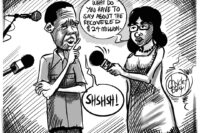

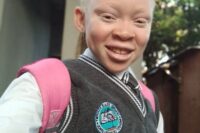
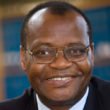
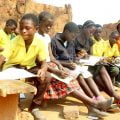


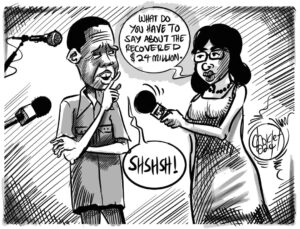

One Response
Great article Dr Chipande. One of the issues that you neglected to mention is the poor and outdated sports facilities existing at these high institutions of learning. This further demonstrates the lack of commitment to develop sports education by our universities and colleges.